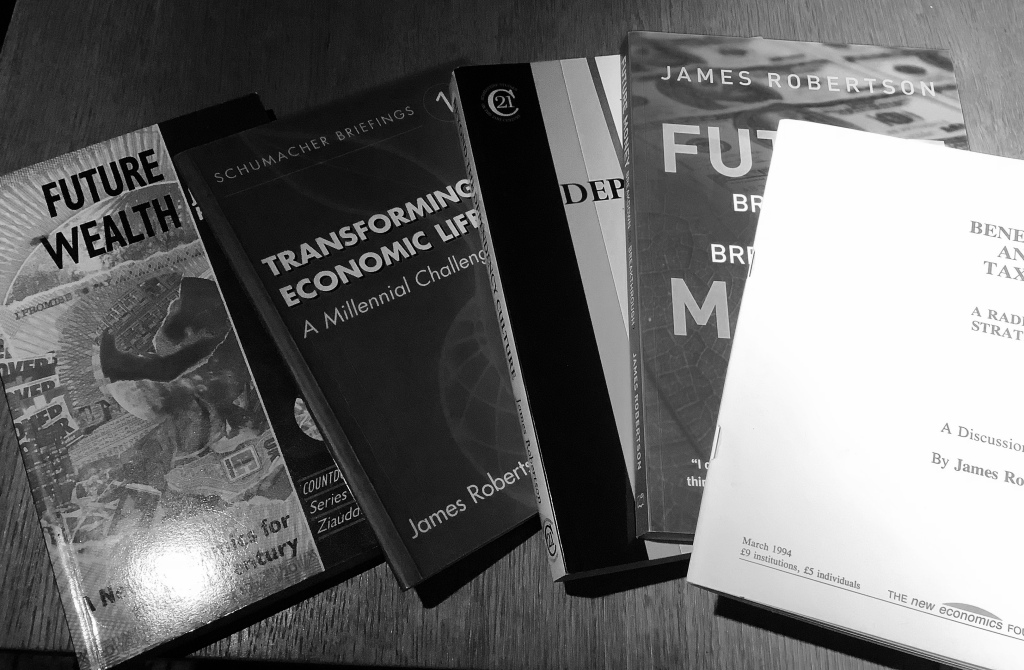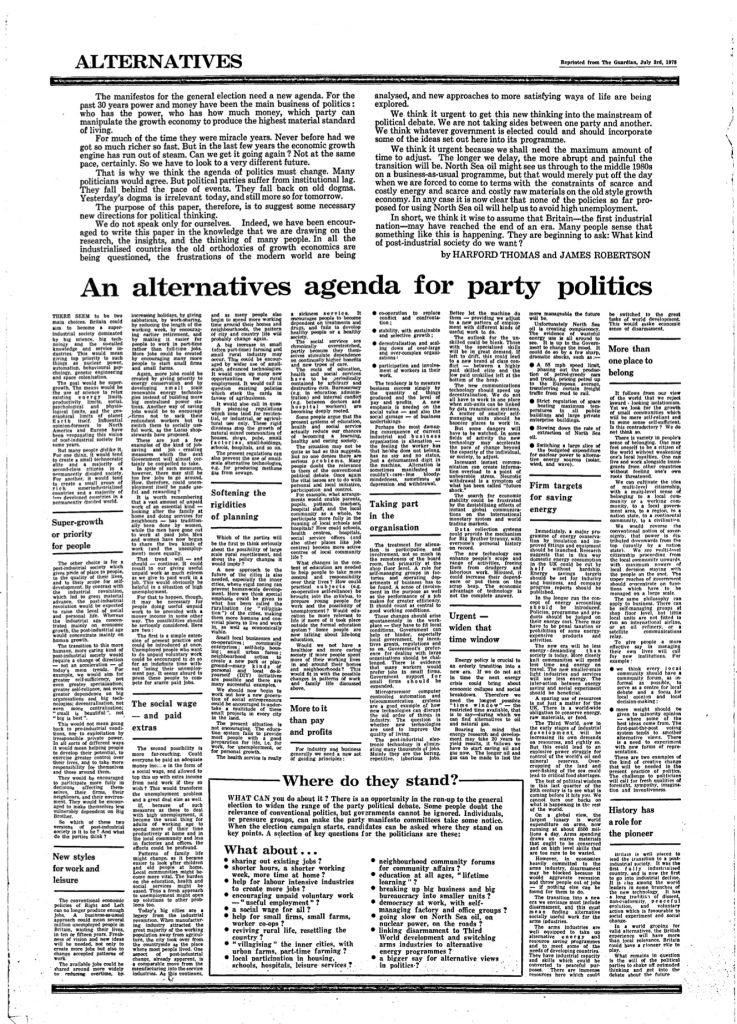One of the great radical thinkers over my lifetime has died. I have been asked by the Guardian to write about the life of James Robertson, one of the key figures behind the formation of the New Economics Foundation.
The obituary I wrote is published here
It has been a joyful process and a privilege to revisit his life and works, turning out my bookshelves to re-read his writing, including one, Benefits and Taxes, commissioned by me thirty years before.

In 1974, James wrote an article for the Times, asking if we could have a non-profit economy and four years later, for the Guardian, with the journalist Harford Thomas, he created an Alternatives Manifesto as a challenge to the thinking of all the political parties on economic, social and environmental policy.

There are many great insights and ideas that remain fresh. Here is one on ‘efficiency’, a topic which still retains a one-eyed grip on economic thinking today:
Efficiency is measured as a ratio between significant inputs and significant outputs; the greater the output in relation to the input, the greater the efficiency. So its meaning depends on what are seen as the most significant inputs and outputs what inputs are most important to reduce, and what outputs are most important to increase?
In farming and every other sphere it has been assumed efficient to reduce labour. Supposedly efficient farms have produced high profits (output) compared with the number of workers employed (input). Ratios between the calorific value of the food produced and the materials used to produce it, or between the amount of food produced and the area of land farmed, have not been seen as significant. Nor have the externalised costs of water, air and land pollution, soil erosion, impacts on human health, destruction of wildlife and wildlife habitats, and rural unemployment.
The meaning of economic efficiency needs rethinking in all sectors of economic activity.
My thanks in appreciation, and condolences in sadness to Alison Robertson, James’ wife, and his friend Francis Miller, for their encouragement and input to what I have written on his life and work.
